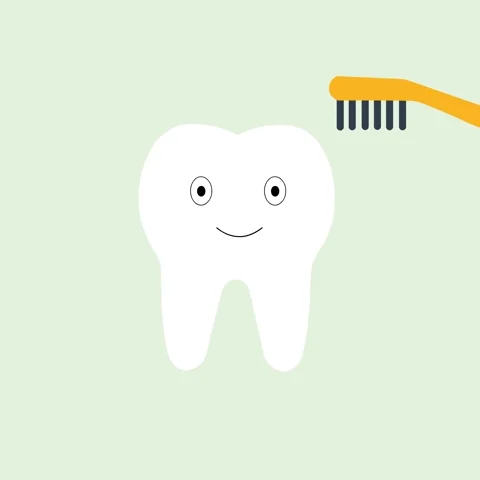Effects of Smoking on Oral Health:
Are you aware that smoking poses numerous health risks, both systemic and localized?
In this article, we will focus on discussing the influence of smoking that mainly affects your mouth (oral cavity).
1. Gum Disease:
Smoking affects your mouth health drastically. It is responsible for the development of gum diseases (gingivitis and periodontitis), which is the infection of supporting tissue of tooth/teeth leading to the destruction of the bone supporting your tooth and the tissues surrounding it.
Cosmetic effects and foul smell:
Let's talk about the cosmetic effects of smoking on your teeth. If you are a regular cigarette smoker, then you have higher chances of developing stained teeth.
A yellowish tint to your teeth and persistent bad breath may not directly impact your health, but they can negatively affect your social interactions.
Hairy tongue:
Few people also experience hairy tongue due to smoking, also called smoker's tongue.
Reduced immunity:
Smoking weakens your immune system. Allowing the bacteria and viruses to invade your gums and teeth with ease and delayed healing after oral (mouth) surgeries and implant surgery.
Smoking and symptoms of gum disease
If you smoke, it is very important to check on your dentist for regular check-ups to rule out the following symptoms;
- Red, swollen, tender, bleeding gums.
- Pus discharge from your gums.
- Loose teeth.
- A metallic taste or halitosis (bad breath).
- Gaps forming between your teeth.
Smoking and delayed healing after dental treatment
Cigarette smoking can cause the following to occur;
- Dry socket – delayed healing of the tooth socket following extraction, and which can be extremely painful.
- Increased pain after oral and gum surgery.
- Higher chances of 'failure of dental implants'.
Check your dental surgeon if any problem arises.
Role Of Smoking in The Development of Periodontitis:
Periodontitis is an inflammation of the tissues supporting the teeth, caused by bacteria invading the areas surrounding the tooth. Smoking is a significant contributing factor to the development of this condition.
Classical symptoms of periodontitis include;
- Puffy gums, bright red, dark red, or dark purple gums.
- Tender (painful) when pressure is applied.
- Gum bleeds easily, the toothbrush will have pinkish color stained by the bleeding.
- Bad breath that won't go away even after brushing.
Gingivitis and its Relationship to Smoking:
Smoking silently kills your smile. Smoking weakens up your immunity and decreases the flow of saliva as well as the blood flow, which decreases the combat system fighting bacteria in your oral cavity.
The weakened defense mechanism leads to bacterial proliferation. These factors are associated with increased plaque formation leading to gingivitis.
Oral Cancer and Tobacco Smoking:
One of the leading causes of mouth cancer worldwide is associated with smoking.
Tobacco in cigarettes is a well-known cancer-causing agent, which is associated with early deaths globally.
“Don't let tobacco take your breath away”.
Types of Oral Cancer Associated with Smoking:
Squamous cell carcinoma accounts for 90% of the cases of oral cancers. Tobacco is the main culprit causing squamous cell oral cancer. [1]
Cosmetic Effects of Smoking on Oral Health:
Smoking is the primary culprit behind those 'unpleasant stains' that can make your smile look dull and lifeless.
Smoking can also lead to gum disease, which can cause your gums to recede and your teeth to loosen. So, if you want a smile that's not only healthy but also dazzling, it's time to break the habit and allow your teeth to shine.
Discoloration:
Smoking is a major contributor to teeth staining. The components nicotine and tar can penetrate the outer layer of your teeth, known as enamel, leading to an aesthetically unappealing discoloration.
Bad Breath and Smoking:
Are you experiencing persistent bad breath (halitosis) despite maintaining good oral hygiene? Are you also a smoker?
Smoking is a primary contributor to unpleasant breath. The tobacco in cigarette smoke creates an environment conducive to the rapid growth of bacteria, which in turn leads to bad breath.
DRY MOUTH: Smoking reduces salivary flow, and saliva is an important cleansing agent that helps remove debris and bacteria from the mouth, which can contribute to bad breath.
GUM DISEASE: This condition is another significant contributor to the development of bad breath.
Treatment Options for Smokers with Oral Health Issues:
- Quit smoking.
- Professional dental cleaning.
- Teeth whitening.
- Gum disease treatment.
- Regular dental check-ups.
- Oral cancer screening.
Lifestyle Changes and Smoking Cessation Programs
1. Healthy Diet:
- Nutrient-rich foods, avoid sugary drinks, stay hydrated: It will improve the overall health
2. Regular Exercise:
- Physical activity: A highly effective way to reduce stress is to engage in regular physical exercise, which can boost your energy levels and enhance your mood.
3. Stress Management:
- Develop coping mechanisms: It is essential to practice healthy strategies for managing stress. Techniques such as relaxation exercises, meditation, and yoga can help individuals calm their nerves and promote overall well-being.
4. Social Support:
- Connect with supportive friends, family, and join support groups.
- Engage with people who have already quit smoking can be a motivating factor to help you quit as well.
5. Avoid Triggers:
- Try identifying the triggering factors and avoiding them.
6. Professional Help:
- Consulting a healthcare professional can provide guidance and support in your journey to quit smoking. They may recommend nicotine patches, gum, or lozenges to help manage cravings effectively.
Oral Hygiene Practices for Smokers
1. Brush Twice Daily:
- Use a soft-bristled toothbrush and fluoride toothpaste.
- Brush for at least two minutes each time.
- Angle your toothbrush at a 45-degree angle to your gumline.
2. Floss Daily:
- Flossing aids remove plaque and food particles left between teeth, which can cause gum disease.
- Use dental floss or a water flosser. Both are effective cleaning methods
3. Use a Mouthwash:
- An antibacterial mouthwash can help kill bacteria that cause bad breath and gum disease.
4. See Your Dentist Regularly:
- Regular dental check-ups are essential for smokers, as the dentist can detect the problem before it has been established.
5. Consider Professional Teeth Cleaning:
- Tartar formed on teeth cannot be cleaned with a normal toothbrush. It requires professional cleaning through special ultrasonic instruments.
6. Avoid Tobacco Products:
- Quitting smoking is the most effective way to safeguard your oral health and prevent the development of oral diseases. Taking this step can lead to significant improvements in your overall well-being."
[1]. Ncbi published an article. Tobacco and oral squamous cell carcinoma: A review of carcinogenic pathways

